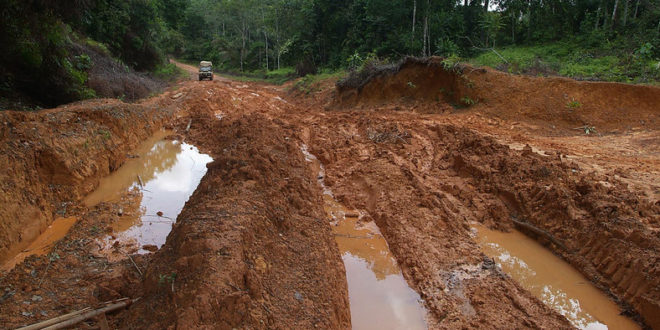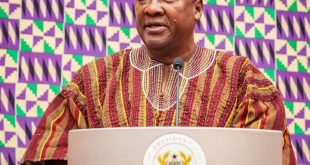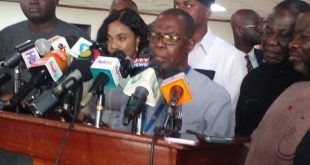The Ghana Cocoa Board (COCOBOD) has announced that it will stop building cocoa roads once current projects are finished.
In order to address transportation issues for delivering agro-inputs to cocoa growers and to allow cocoa bean evacuation, COCOBOD established the Cocoa Road Programme.
At the 50th Anniversary Celebration symposium of the Cocoa Clinic, CEO Joseph Boahen Aidoo said that discussions with the European Union and the International Monetary Fund (IMF) led to this change in policy.
He claimed that both organizations questioned COCOBOD’s involvement in road building and urged an emphasis on core duties.
“The EU sent a team last year to do due diligence on sustainable production and when they came, they wanted to know why COCOBOD was involved in cocoa roads construction because it is not a core business of COCOBOD, and they insisted that we take that venture out of our equation; and, of course, the IMF is also saying the same thing”. “They say that we can continue with what we are currently constructing and not start new ones”, Mr Boahen said.
In order to improve farmers’ access to healthcare, he also described plans for building healthcare facilities in cocoa-growing areas, noting instances of farmers having to travel far for care as motivation.
“I once witnessed a woman who was unable to deliver her baby while in labor being carried over 28 kilometers in a hammock before she passed away. You will be moved to act when you see how difficult it is for our cocoa farmers to get healthcare, which is why it is crucial for our institution to locate health facilities and services as close to these farmers as feasible.
Former President John Agyekum Kuffour in February 2008 launched the Cocoa Roads Improvement Project (CRIP).
The project was intended to improve arterial roads from Accra to the neighboring countries of Togo, Cote d’Ivoire and Burkina Faso.
An amount of US$100 million dollars was made available that year [2008] to tar some selected roads in six selected cocoa growing areas and US$200 million in 2011.
“Work is on-going in various Metropolises, Municipalities, and district capitals to reduce traffic congestion, improve public transportation and support economic activities. Accra is a typical example of these -Nkrumah Circle-Ofankor; Tetteh Quarshie-Aburi; Mallam-Kasoa and all over the country,” President John Agyekum Kuffour said on February 14, 2008.
President Kufour at the time added that since his assumption into office 2001, over 1,000 kilometres of feeder roads had been surfaced nation-wide, about 4,800 kilometres had undergone rehabilitation, 10,000 kilometres had undergone spot improvement, while 2,300 kilometres had been re-gravelled.
In 2015, the programme was relaunched as the Cocoa Roads Rehabilitation Programme under former President John Dramani Mahama during a working visit to the Ashanti and Eastern regions.
The US$750 million programme under the erstwhile National Democratic Congress government was meant to fill the gap in road infrastructure in cocoa-producing areas in Ghana and was said to be the single biggest road infrastructure project to be financed by the Ghana Cocoa Board.
Spanning over five years, COCOBOD put aside part of its profits of US$150 million every year for five years to finance the reconstruction of selected roads in cocoa-growing areas.
Some of the roads project earmarked were in the Asamakese-Suhum; Adeiso-Asamankese; Osenase–Akwatia; Koforidua–Bunso; Apedwa-Kyebi–Bunso and Kyebi town roads.
Other projects were the rehabilitation of Suhum town roads, construction of selected roads at Asamankese, and bitumen surfacing of Noyem-Winso-Amuana–Praso, Mangoase–Kukua, Chia-Brenase–Ofoase, and Akim Sekyere-Abekoase roads.
In all, a total of 628.70 kilometers of roads had been earmarked for construction under Phase 1 of the project as at October 2015.
Source: Ghanatodayonline.com
 Ghanatodayonline.com News, Politics, Health, Education & More
Ghanatodayonline.com News, Politics, Health, Education & More




